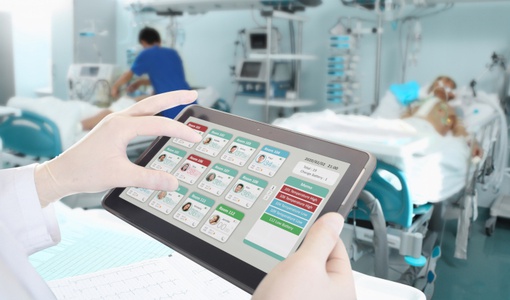

COVID-19 & Data-enabled healthcare initiatives
May 8, 2020, 2:04 p.m.Consumers are now more focused on their health, with testing being the order of the day, whether its Covid-19 is an option by healthcare organizations or consumers to use private companies to test themselves by different medical systems.
The massive growth in healthcare data, with the extent of the right privacy in place, represents an opportunity for various data and AI experts to develop useful solutions that will help reduce the risk of contagion, worrying consumers. Will provide relief to them while helping them overcome these difficulties.
An initiative to advance health among people and communities around the world. This five-year commitment with AI and data science tools was made to empower nonprofits, researchers and organizations.
Artificial intelligence has emerged as a powerful tool in the fight against Covid-19. Technology is now used to train computers to leverage data-enabled models for machine learning, NLP, interpretation and prediction.
These applications can be effective for the diagnosis, modification, and treatment of Covid-19 disease, and they can also aid in the management of socio-economic effects. As this epidemic is spreading rapidly, this has led to a rush to detect and deploy AI to ensure and address the increasing demand for treatment of an infected patient by coronavirus.
Given the current situation, we are focusing on helping those who have been the first victims of this Covid-19 epidemic, and we are mobilizing AI for this health initiative.
Where we think that data, analysis and skills of our data scientists can have the greatest impact.
Many large companies are committed to fighting COVID-19, as they empower students around the world and also support distance education. Working from home to enable their businesses to obtain first aid supplies and support local communities.
National data opt-out is an information governance policy that supports health and care workers' health data to be managed more effectively, enabling them to share this data, and also enhance research and planning Can go This service is being used for confidentiality among patients, so that patients can keep their information confidential.
Extended the deadline for health professionals to properly comply with the Data Protection and Protection Toolkit (DSPT), and an education tool used to protect organizations against cyber attacks Has been given.
Most organizations around the world have already met this compliance standards and continue to do their work as per service. Opt-outs do not include instances where public interest affects personal privacy in the disclosure of patient data. It is expected to expand data sharing in an effort against COVID-19.
A temporary measure to allow a focus on the health and care system to respond to outbreaks of epidemics such as Covid-19 is to: build public trust for the use of health and care data
And implementation of national data opt-outs in long-term work.
A recent statement by the UK authority ICO on the right to information has outlined how data protection laws prevent the government or NHS from using the latest technology to facilitate safe and speedy consultation and diagnosis. This is the reason why, public bodies may need additional collection and sharing of personal data to protect them from serious threats to public health.
However, to deal with the direct effects of the COVID-19 epidemic, many healthcare-related organizations have played a key role in maintaining a core and critical clinical service. In many countries the initial response is to health facilities, including reducing or even discontinuing medical services or postponing medical appointments or elective surgeries. However, such strategies cannot be sustained indefinitely if the COVID-19 pandemic extends beyond 6 months.
In this way, we see how useful data is proving in the field of health-efficient health during COVID-19. In view of the outbreak of this pandemic, it is believed that in the coming time, due to the data enabled in the field of health will be greatly helped.
Got another minute? Check out:


COVID-19 and digitalisation: 4 areas of tech set to boom post-pandemic

What COVID-19 Means for Ecommerce Startups


COVID-19 and the Future of Globalization

5 Ways Blockchain Tech Can Help Us During This Pandemic

Business Implications of Covid-19.

Businesses to survive the Covid-19 crisis

How will blockchain technology help to reduce the damage due to COVID-19.

Is COVID-19 be the best time of startup. Is it really?

